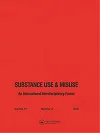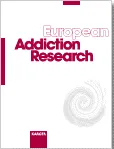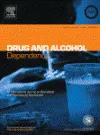 Accueil
Accueil
Détail de l'auteur
Auteur A. L. BRETTEVILLE-JENSEN |
Documents disponibles écrits par cet auteur (27)
 Ajouter le résultat dans votre panier Faire une suggestion Affiner la recherche
Ajouter le résultat dans votre panier Faire une suggestion Affiner la recherche![Better data, better policy and better lives: a call for improved drug monitoring and concerted responses [Editorial]](https://bdoc.ofdt.fr/img_cache/pmb_ofdt_record_82705.webp)
Article : Périodique
C. M. COMISKEY ; A. L. BRETTEVILLE-JENSEN ; H. BERGERON ; G. BUHRINGER ; P. DARGAN ; M. DAVOLI ; F. FAGGIANO ; G. FISCHER ; F. RODRIGUEZ DE FONSECA ; H. GARRETSEN ; M. HICKMAN ; D. J. KORF ; K. KRAJEWSKI ; L. PAOLI ; R. SPANAGEL |With the breadth of new psychoactive substances and international policy changes, an analysis of specific responses in all areas of drug supply and demand is beyond the resources of a single country. The Scientific Committee of the European Moni[...]
Article : Périodique
Background: Incarcerations are associated with an increased risk of morbidity and mortality among people who use drugs (PWUD). In a sample of 884 PWUD, we examine and estimate the risk of incarcerations (i.e., number, duration, and most serious [...]
Article : Périodique
BACKGROUND: Use of illicit substances is often under-reported. Testing positive in oral fluid provides an objective confirmation of recent intake. OBJECTIVES: To examine the agreement between oral fluid test results and self-reported substance[...]
Rapport
A. L. BRETTEVILLE-JENSEN ; S. MIKULIC ; P. BÉM ; F. PAPAMALIS ; Y. HAREL-FISCH ; J. SIEROSLAWSKI ; F. TRIGUEIROS ; L. PISCOCIU ; S. TSAREV ; P. ALTAN ; C. COSTA STORTI | Strasbourg : Groupe Pompidou | 2017FRANÇAIS : L'évaluation fait partie intégrante d'une approche de bonne gouvernance des politiques publiques. Ce principe s'applique de la même manière à la composante d'une politique en matière de drogues visant à lutter contre la disponibilité[...]![A critical first assessment of the new pre-market approval regime for new psychoactive substances (NPS) in New Zealand [For debate]](https://bdoc.ofdt.fr/img_cache/pmb_ofdt_record_74845.webp)
Article : Périodique
C. WILKINS, Auteur ; A. RITTER, Auteur du commentaire ; L. VON DIEMEN, Auteur du commentaire ; S. ROLLES, Auteur du commentaire ; D. KUSHLICK, Auteur du commentaire ; A. L. BRETTEVILLE-JENSEN, Auteur du commentaire ; B. HUGHES, Auteur du commentaire ; P. GRIFFITHS, Auteur du commentaire |Background: New Zealand has recently attempted to address the underlying drivers of the escalating new psychoactive substances (NPS) ('legal highs') problem by establishing the world's first pre-market approval regulatory regime for NPS. NPS pro[...]
Article : Périodique
H. GJERDE ; A. L. BRETTEVILLE-JENSEN ; H. FURUHAUGEN ; L. BACHE-ANDREASSEN ; M. S. S. BERGH ; V. VINDENES |As used syringes for analytical testing are not easily available everywhere, developing alternative methods is vital. This pilot study presents the first results from a new approach of monitoring drug injection by analyzing the contents of used [...]
Périodique
A. L. BRETTEVILLE-JENSEN ; E. BIØRN | 2004ENGLISH : Using a unique data set of almost 2,500 interviews with people attending a needle exchange service in Oslo, this paper sets out to estimate the impact of economic factors on heroin and amphetamine injectors drug consumption, includin[...]
Périodique
A. L. BRETTEVILLE-JENSEN | 2006ENGLISH : As illicit drug use inflicts considerable harm on users, non-using persons and society, there is an urgent need to better understand demand. Unlawfulness and addictiveness separate the consumption of narcotic drugs from the consumpti[...]
Article : Périodique
Background: The trend in the number of new problem drug users per year (incidence) is the most important measure for studying the diffusion of problem drug use. Due to sparse data sources and complicated statistical models, estimation of inciden[...]
Périodique
A. L. BRETTEVILLE-JENSEN ; E. BIØRN | 2003ENGLISH : Estimation models of drug demand should encompass the aspect of addiction. Here, we consider two static panel data regression models and two cross-section models with lags or leads in drug consumption as additional regressors. Heroin[...]
Article : Périodique
BACKGROUND AND OBJECTIVES: Even though nightlife studies with potentially intoxicated participants provide the much needed information on drug use, they face additional methodological challenges. This study aimed to explore the utility of such s[...]
Article : Périodique
Background: Much research on the use of amphetamine, cocaine and heroin employs individual level data and analyses variations in drug use by factors like personal characteristics, socioeconomic factors, and the social environment. Less attention[...]
Article : Périodique
Background and aims: Diversion of opioid substitution drugs (OSD) is of public concern. This study examined the prevalence, frequency, and predictors of illicit OSD use in a group of injecting drug users (IDUs) and assessed if such use was assoc[...]
Article : Périodique
Background: Opioid substitution treatment (OST) is recognised as an effective treatment for opioid dependence. Still, a subgroup of OST users continues to inject drugs. This study examines health risks and criminal activity in a population of ne[...]
Article : Périodique
INTRODUCTION: Wastewater-based epidemiology (WBE) has emerged as a timely, non-invasive, and cost-effective indicator of illicit drug consumption. It is increasingly used by international organizations as a proxy measure for estimates of drug pr[...]




